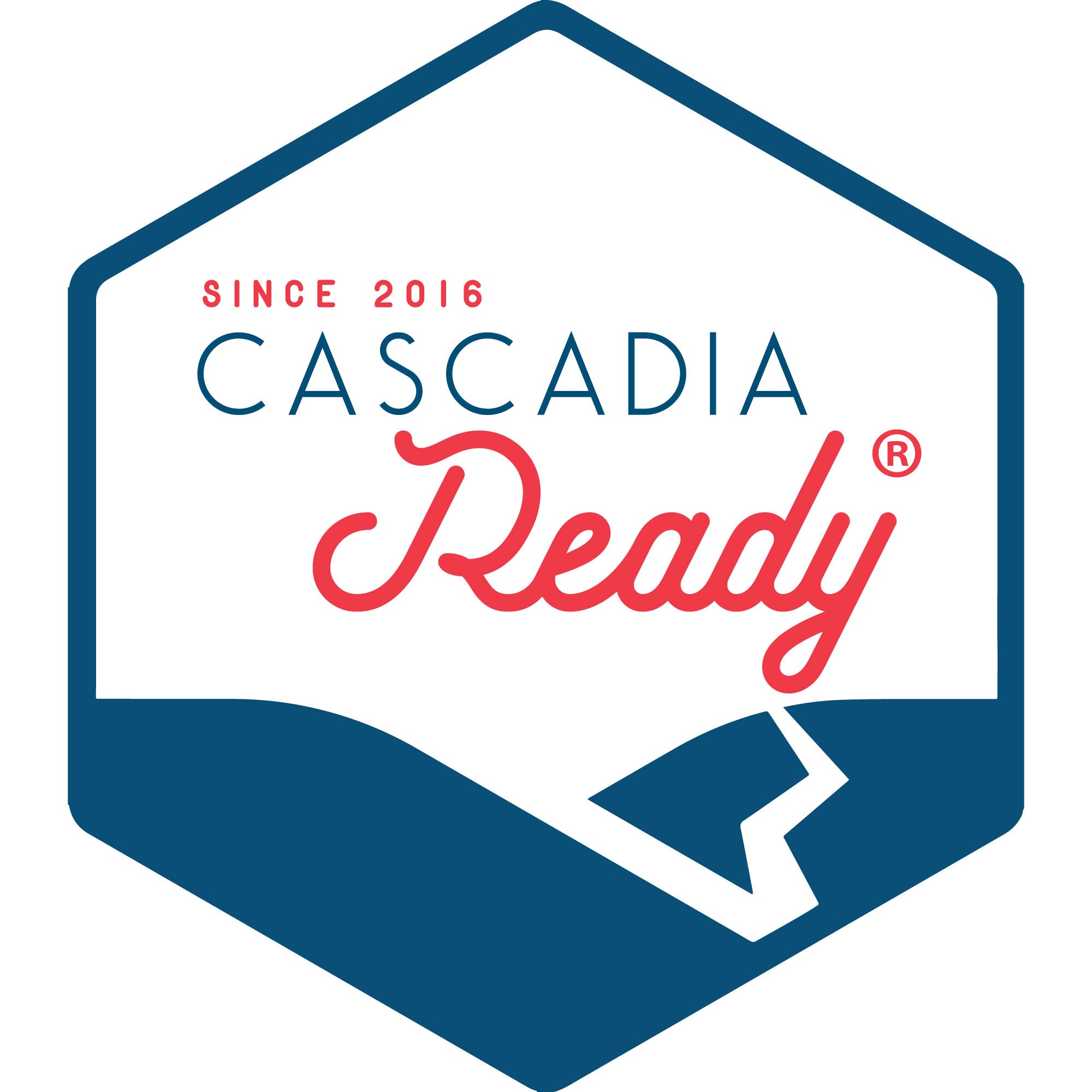What is the Cascadia Subduction Zone?
What is the Cascadia Subduction Zone?
The world’s largest earthquakes occur along subduction zones, geologic hot spots where one of earth’s tectonic plates is slowly being forced underneath another. These plates stick, causing a buildup of stress, which is periodically released through massive earthquakes. These are not your run-of-the-mill 15-second San Andreas Fault earthquakes. These magnitude 8+ megathrust earthquakes shake the earth for four to six minutes and are followed by tsunamis and numerous aftershocks.

The Cascadia Subduction Zone (CSZ) lies off the coast of the Pacific Northwest underneath the Pacific Ocean. It stretches 700 miles from Northern California to British Columbia. The CSZ is part of the infamous Pacific “Ring of Fire” where over 90% of the world’s earthquakes occur. The Cascadia Subduction Zone is where the oceanic Juan de Fuca plate is diving underneath the North American plate. The CSZ is different than most subduction zones in that it is "locked." In most other subduction zones, tectonic plates slide more freely and therefore have more frequent earthquakes, releasing built-up pressure more often. Because the CSZ is locked, it builds up pressure over longer periods of time and produces massive earthquakes when it does rupture.

The Cascadia Subduction Zone has produced 41 major earthquakes in the last 10,000 years. These earthquakes have ranged from 125 to 800 years apart with an average interval of 243 years. The last Cascadia earthquake occurred in January of 1700.
Seismologists predict there is a 37% chance that the Cascadia Subduction Zone will let loose a magnitude 8+ megathrust earthquake within the next 50 years. This earthquake is expected to be the largest natural disaster in North American history. In order to prepare for this catastrophic event, Pacific NW Emergency Managers strongly advise people to have emergency supplies and plans to be self-sufficient and shelter in place for a minimum of two-weeks.
No one knows when this megaquake will happen, simply that it will. We're not about provoking fear; we are realists who promote taking action to help our communities prepare.
